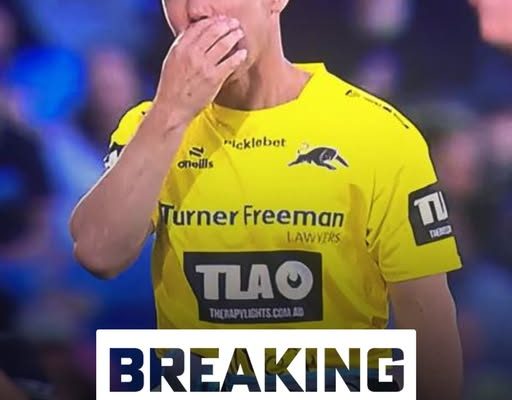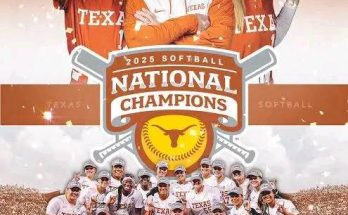Ivan Cleary has labelled the NRL’s sanctions against Penrith’s trainer as “harsh and a little unfair”, claiming he is concerned for the man at the centre of the controversy. The Panthers’ head coach has come out in strong defence of his staff member after the league handed down a hefty penalty for an alleged breach of protocol during a recent match. The incident has sparked debate across the rugby league community, with opinions divided on whether the punishment fits the offence or if the NRL has overstepped in its disciplinary measures.
The controversy stems from an alleged interaction between the Penrith trainer and a player during a stoppage in play. The NRL has strict rules governing when and how trainers can enter the field of play, particularly in high-pressure moments where their presence could influence the game. The league’s integrity unit investigated the matter and determined that the trainer had overstepped his boundaries, leading to a significant fine and a suspension. While the exact details of the incident remain somewhat unclear, the NRL has stood firm on its decision, insisting that any breach of protocol must be met with strong consequences to maintain the competition’s integrity.
Cleary, however, believes the punishment is disproportionate. Speaking to the media, he expressed sympathy for the trainer, describing him as a dedicated professional who has always acted in the best interests of the team. “I think it’s harsh and a little unfair,” Cleary said. “This is someone who has given a lot to the game and to our club. To see him copping this kind of scrutiny and penalty is tough. I’m genuinely concerned for him.” The Panthers coach also hinted at a lack of consistency in how the NRL applies its rules, suggesting that similar incidents involving other clubs may not have been treated with the same severity.
The NRL’s crackdown on trainer interference is part of a broader effort to minimise external influences during matches. In recent years, there has been growing frustration among fans and commentators about the frequency of trainers entering the field, sometimes appearing to relay messages or disrupt the flow of the game. The league has been under pressure to tighten regulations, and this case appears to be a demonstration of its commitment to enforcing those rules. However, critics argue that the response has been heavy-handed, particularly when the impact of the alleged breach on the game itself was minimal.
Former players and analysts have weighed in on the debate, with some supporting the NRL’s stance. They argue that even minor breaches of protocol can lead to bigger issues if left unchecked, and maintaining strict standards is essential for fairness. Others, however, side with Cleary, questioning whether the punishment was more about sending a message than addressing a genuine integrity concern. The fact that the trainer involved is a long-serving and respected figure in the game has only added to the sense that the penalty may have been excessive.
The Panthers, as a club, have been one of the NRL’s most successful teams in recent years, and their dominance has sometimes made them a target for scrutiny. Some observers have speculated whether the severity of the sanction is influenced by Penrith’s high profile, with the league perhaps more eager to make an example of a top-tier team. Cleary did not directly accuse the NRL of bias but acknowledged that the situation felt “unjust” given the circumstances.
Beyond the immediate fallout for the trainer, the incident raises broader questions about the NRL’s disciplinary processes. How are penalties determined? Is there enough transparency in decision-making? And is there a consistent framework applied across all clubs? These are questions that fans and stakeholders will likely continue to ask as the league navigates similar controversies in the future.
For now, the Penrith trainer must serve his suspension, and the club will have to adjust without his presence on the sidelines. Cleary’s public support suggests that the Panthers are standing by their staff member, but the episode has undoubtedly left a sour taste. Whether it leads to any changes in how the NRL handles such matters remains to be seen, but one thing is clear: the debate over fairness, consistency, and the role of trainers in the game is far from over.
The incident also highlights the human element often overlooked in professional sports. Behind every sanction is a person whose livelihood and reputation can be significantly impacted. Cleary’s concern for his staff member underscores this reality, reminding us that while rules are necessary, their application must always consider context and proportionality.
As the NRL moves forward, it will need to balance its commitment to integrity with a sense of fairness. The league cannot afford to be seen as arbitrary or overly punitive, especially when dealing with individuals who have dedicated their careers to the sport. At the same time, maintaining clear boundaries for trainers and other officials is crucial to preserving the integrity of the competition. Finding that balance will be key to ensuring that future decisions are met with understanding rather than backlash.
In the meantime, Ivan Cleary’s comments have ensured that this story will remain in the spotlight. His willingness to speak out reflects his loyalty to his staff and his frustration with what he perceives as an unfair ruling. Whether the NRL revisits its approach or stands firm, this incident has sparked an important conversation about how the game is managed—and at what cost.
The Panthers, for their part, will be looking to put the controversy behind them as they focus on their campaign. But the repercussions of this decision may linger, not just for the trainer involved, but for the way the NRL enforces its rules moving forward. Rugby league is a game built on passion, intensity, and a sense of fairness. How the league reconciles those values with its regulatory framework will shape its future—and determine whether decisions like this one are seen as just or unjust in the eyes of those who love the game.
Ultimately, the NRL’s priority must be to protect the integrity of the sport while also treating its participants with respect. Striking that balance is never easy, but it is essential if the league wants to maintain the trust of players, coaches, and fans alike. Ivan Cleary’s strong stance may well prompt further reflection on whether the current system is achieving that goal—or if changes are needed to ensure fairness prevails.



